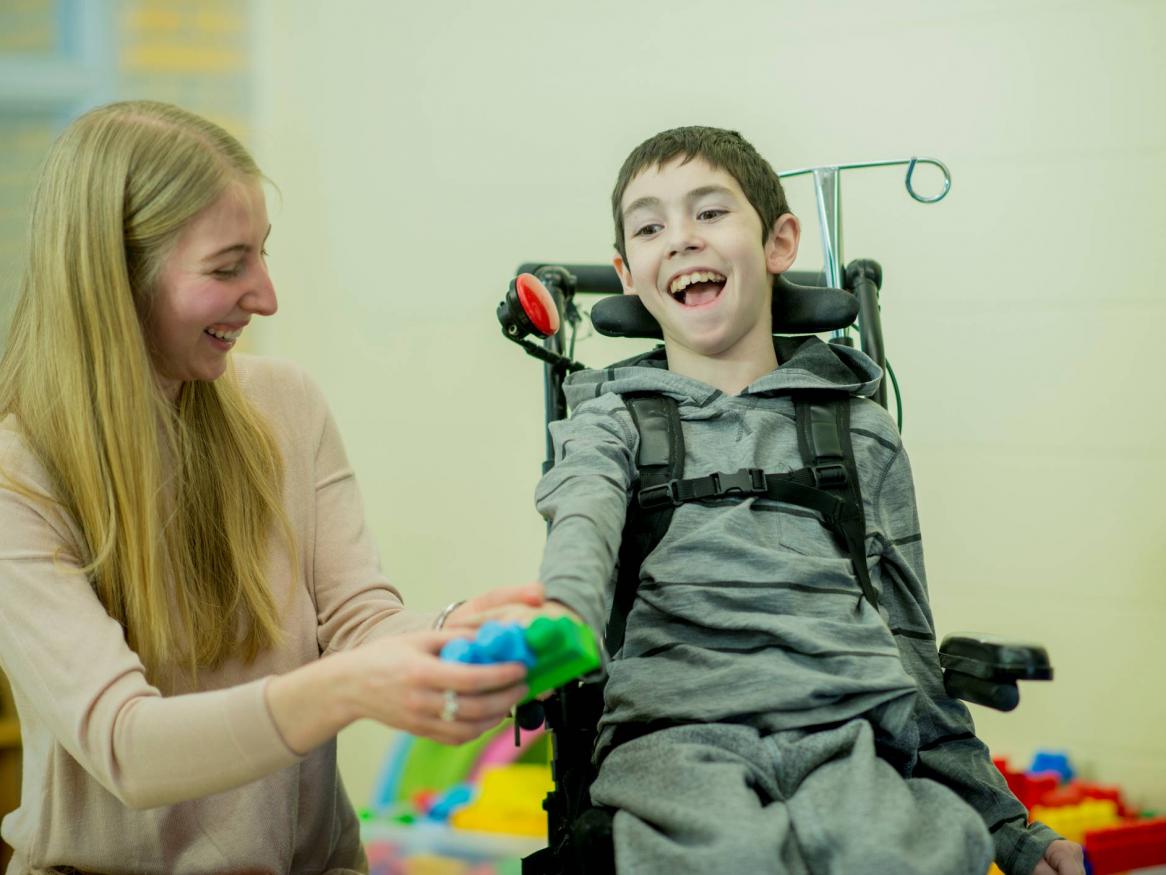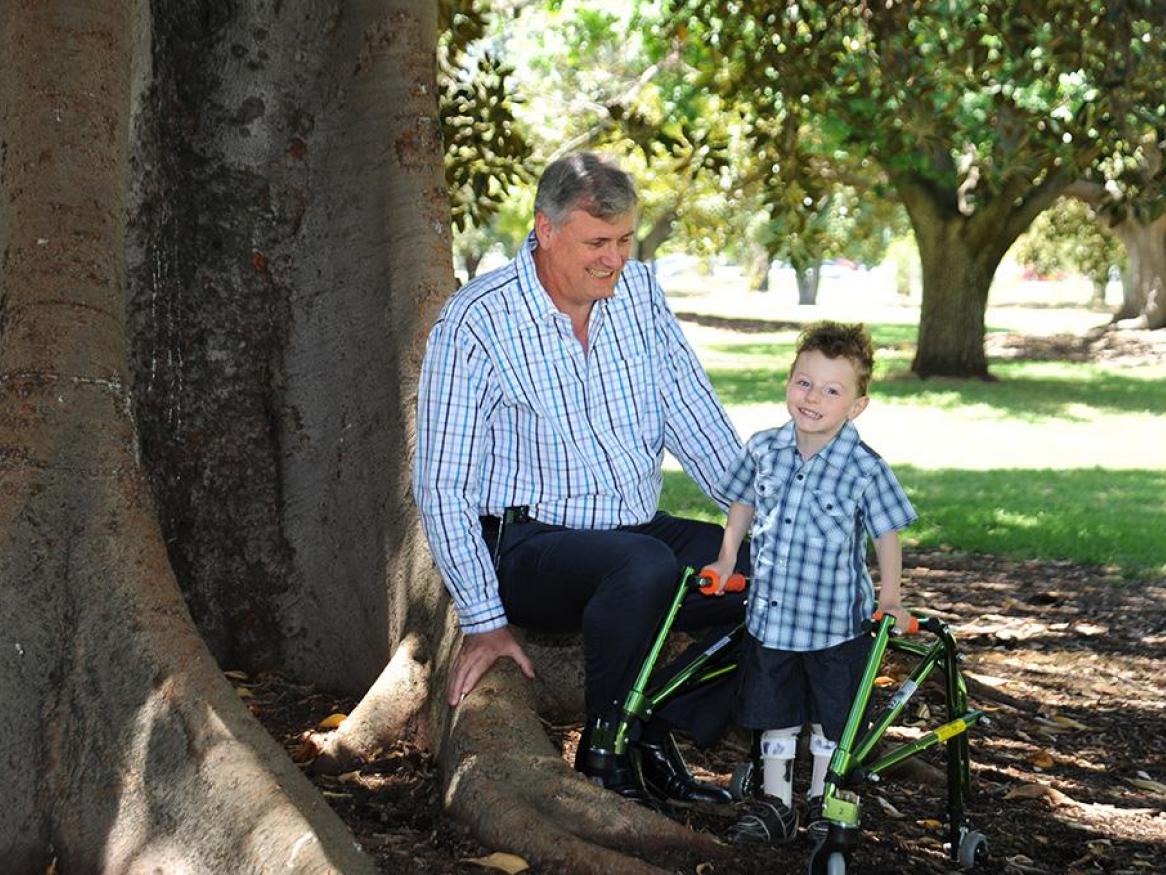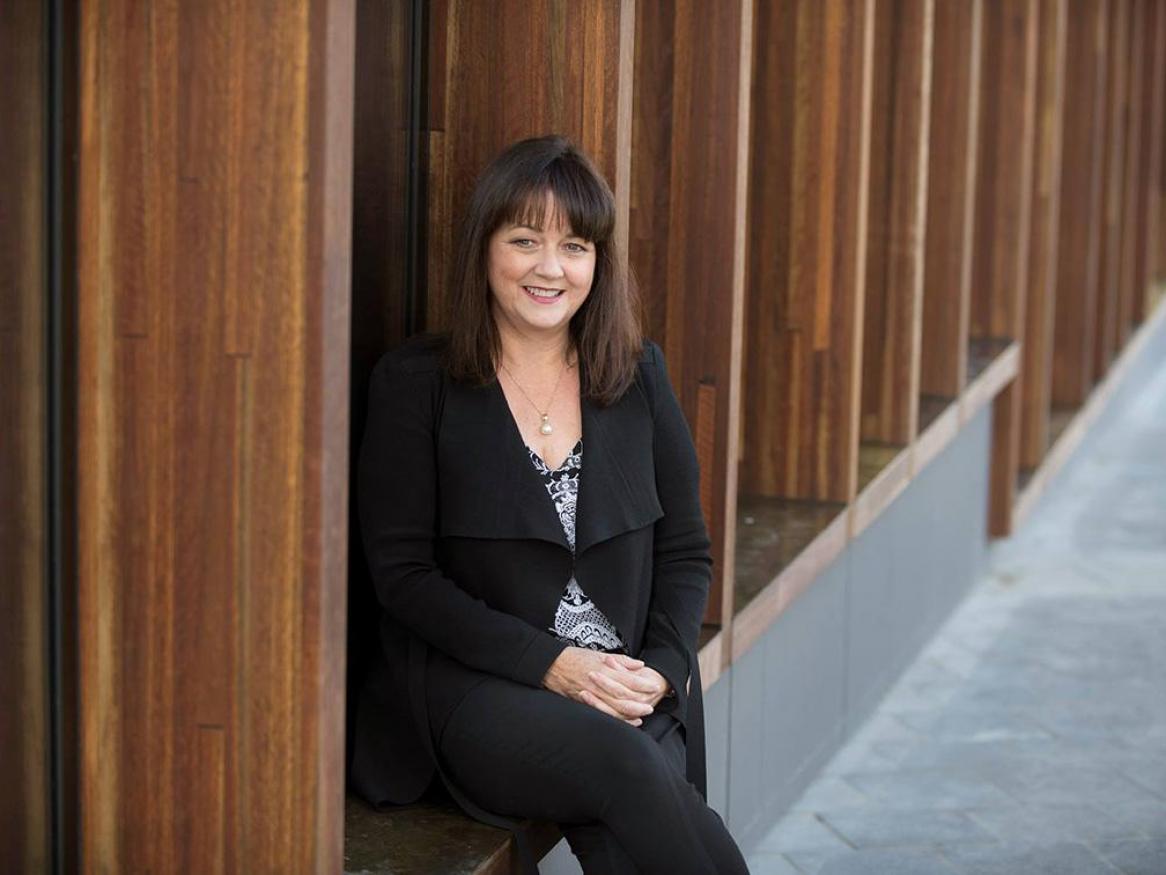News: media release
Major cerebral palsy gene revealed

Dr Mark Corbett and team have identified the most common genetic cause of cerebral palsy, increasing the chances of finding better treatments for the debilitating disease.
South Australian of the Year to lead Women's and Children's research

University of Adelaide Professor Helen Marshall AM has been appointed to the inaugural role of Clinical Research Director at the Women’s and Children’s Health Network (WCHN).
[Read more about South Australian of the Year to lead Women's and Children's research]
Fertility Week: 12 to 18 Oct 2020
Fertility Week (12 to 18 October) focuses on the impact that age has on fertility in Australia and around the world.
Study confirms genetic link in cerebral palsy

An international research team including the University of Adelaide has found further evidence that rare gene mutations can cause cerebral palsy, findings which could lead to earlier diagnosis and new treatments for this devastating movement disorder.
[Read more about Study confirms genetic link in cerebral palsy]
Adelaide has key role in COVID-19 vaccine human trials

University of Adelaide researchers are playing a leading role in the human trials of Australia’s first needle-free, gene-based COVID-19 vaccine.
[Read more about Adelaide has key role in COVID-19 vaccine human trials]
Negative impacts of cannabis use during pregnancy
The use of cannabis during pregnancy leads to poorer health outcomes for babies, according to research from The University of Adelaide’s Robinson Research Institute.
[Read more about Negative impacts of cannabis use during pregnancy]
$3 million for congenital heart disease research
More than $3 million has been awarded to the University of Adelaide’s Robinson Research Institute to identify the predisposing conditions and potentially modifiable factors that can substantially reduce the risk of congenital heart defects.
[Read more about $3 million for congenital heart disease research]
$300,000 awarded to SA diabetes researchers
Before the world had heard of the COVID-19 pandemic, there was another pandemic spreading globally with insidious stealth, at an ever-increasing rate – diabetes. Globally, there are 415 million people living with diabetes and this disease is the fastest growing chronic health condition in the world today. Without significant change, by 2040 it is estimated that 642 million people will have diabetes.
[Read more about $300,000 awarded to SA diabetes researchers]
Fears children's immunisation rates will drop
There are fears parents will skip vital vaccinations for their children and that there may be disease outbreaks,because parents are concerned about taking their children to their GP during the COVID-19 pandemic.
[Read more about Fears children's immunisation rates will drop]
Does growth before baby alter allergy risk in humans?
It is increasingly clear that genetics alone do not explain risks of developing allergies, and that environmental exposures before and around birth can program individuals to increased or decreased risk of allergies. Restricted growth before birth in preclinical studies appears to protect the offspring against allergic responses. However, whether prenatal growth predicts subsequent risk of allergy in humans is unclear. Many studies in humans use birth weight as a measure of fetal growth, but do not correct for gestational age, so effects of premature birth may confound those of fetal growth.
[Read more about Does growth before baby alter allergy risk in humans?]
